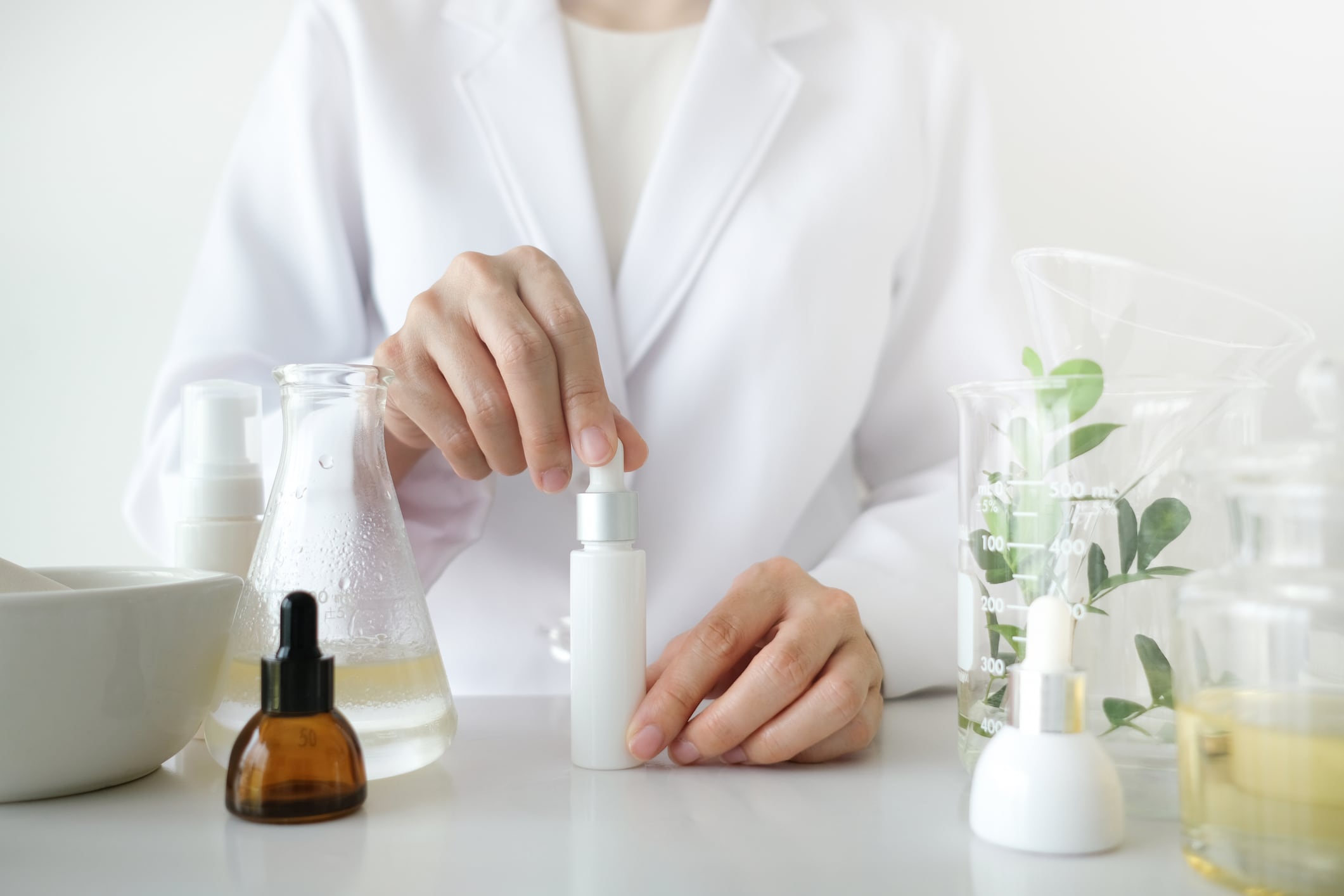What’s happened in the first half of 2025 in the cosmetics industry? Here are the trending stories that have shaken up the industry so far this year...
Fragrance: what will trend in 2025 & beyond?
The global fragrance market is more competitive than ever, and it’s set to grow even further this year.
Statista forecasts that the scent category will generate a global revenue of €56.44bn in 2025, with a compound annual growth rate of 2.68% between 2025 and 2029.
We’ve asked our experts for more insights on what fragrance brands need to know about the category and their customers in 2025 and beyond.

8 beauty tech innovations shown at CES 2025
Early in the year, the world’s biggest beauty and technology companies gathered in Las Vegas to launch cutting-edge tech innovations that are likely to impact the future of the beauty industry.
With innovation from L’Oréal Group, Amorepacific, Samsung Electronics and Perfect Corp to name a few, we outlined what you needed to know from the Consumer Electronic Show (CES) 2025.
8 trends shaping future skin care NPD
Skin care is a big deal in the beauty and personal care industry and has long been the category that drives the most disruption and innovation.
It also generates a healthy amount of revenue with the market reportedly worth €179.30bn in 2025 and expected to grow annually by 3.59% between now and 2029, according to Statista.
Ahead of our special broadcast about Future Skin Care Innovation, we looked at some of the big-picture changes that were altering the skin care category in 2025 and upcoming years.

Beauty product trends to watch in 2026 and beyond...
Going to the In-Cosmetics Global show is the closest thing we have to a crystal ball that gives us a glimpse of the future for the beauty and personal care industry.
Based on what we saw at this year’s show, we outlined what beauty and personal care brands, formulators and cosmetics lovers needed to know about future industry trends...
Unilever chief on future R&D innovation
From the use of AI for R&D to beauty-from-within and the ‘face-ification’ of body care, we found out what’s next for the skin care category by chatting with Unilever Beauty and Wellbeing’s chief R&D officer Dr Jason Harcup.
7 trending ingredients in scalp & hair care
With a wealth of information available at their fingertips, hair care shoppers are becoming savvier about the wants and needs of their hair. From treatments prioritising scalp care, hair growth rituals, and anti-frizz solutions – there has been increasing focus on ingredients that holistically restore the hair and scalp.
We explored seven trending ingredients that are shaping the future based on social media trends, product innovation, and industry expert commentary.

The cosmetics ingredients exempt from US import tariffs
After the US government made an announcement that the majority of global trading partners would face import tariffs, it then announced a host of ingredients that would be exempt from the tariffs.
Vitamins, mineral oils, mineral sunscreen filters and various fatty acids are were among the list of ingredients exempt from Trump’s tariffs, which also includes many clean beauty and sustainable packaging ingredients.
How could Trump’s tariffs affect EU & UK businesses
On that note, the overall threat of skyrocketing import tariffs for products entering the US market shook up the industry in early April.
We reported on the news and explored how it could potentially affect future products development and production.

In-Cosmetics Global Awards 2025: who won?
The world’s biggest cosmetics ingredients show saw “a record number of new ingredients” in the Innovation Zone, this year with 211 new innovations in total from 163 companies.
Every year, the event holds an awards ceremony to celebrate the best industry innovations, where the entries are judged by R&D professionals from some of the beauty and personal care industry’s top brands and we announced the winning ingredients, hot off the press.
France bans the use of forever chemicals
France’s National Assembly adopted a bill to outlaw the production, import or sale of cosmetics containing per- and polyfluoroalkyl substances (PFAS).
PFAS are man-made chemicals that have been used for nearly a century for a variety of products across numerous FMCH categories, including beauty and personal care.
The chemicals take an extremely long time to break down, hence the nickname ‘forever chemicals.’ They have infiltrated the soil and groundwater and are now present in drinking water and throughout the food chain.
Chronic exposure to even low levels of these chemicals has been linked to a variety of health issues including high cholesterol, reduced immune responses, low birthweights, liver damage and several kinds of cancer.
The new bill banned use of PFAS in cosmetics and the French authorities will now regularly test drinking water to monitor for all kinds of PFAS.






